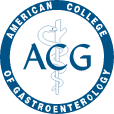A colonoscopy is a diagnostic procedure performed to examine the inner lining of the colon, or large intestine, and the rectum. The colonoscopy procedure is performed routinely in patients over the age of 45 as a means detecting colorectal cancer in its early stages. It is also employed diagnostically to help determine the cause of abnormal bowel activity, abdominal pain or rectal bleeding. During a colonoscopy, tissue samples may be collected for a biopsy, and polyps or other abnormal growths may be removed.
Reasons for a Colonoscopy
Colonoscopies are recommended for people who are at increased risk of developing colorectal cancer. This type of cancer is much more effectively treated when it is detected early. Individuals at increased risk of developing colon cancer include those who:
- Have a personal or family history of colorectal polyps
- Have a personal or family history of colorectal cancer
- Have a personal or family history of inflammatory bowel syndrome (IBS)
- Are obese or have a poor diet
- Smoke or consume alcoholic beverages to excess
- Have diabetes
- Do not exercise regularly
All individuals over the age of 50 should undergo regular colonscopies and the procedure may be recommended for younger patients at elevated risk, whether they are experiencing symptoms or not.
Preparing for a Colonoscopy
In order to prepare for a colonoscopy, the colon must be cleansed so that its inner surface will be visible. Prior to the colonoscopy, patients are given written instructions which may vary a bit from one physician to another. Typically, the patient is told to drink clear liquids for a day or two before the procedure, including water, tea, coffee, strained fruit juices, sports drinks and clear broths. Patients are also permitted to consume gelatin. One strict prohibition is any liquid or gelatin with a red or purple coloration.
The day before the procedure, patients are instructed to drink a quantity of a special laxative solution or to take a large number of laxative pills. It is important that the patient remain close to home during this day because the toilet must be available for frequent use.
Patients who take aspirin or other blood-thinning medication must advise their doctors before going through the colonoscopy procedure. Most other medications can be continued.
The Colonoscopy Procedure
A colonoscopy is generally performed as an outpatient procedure. The patient is positioned on the left side and a sedative is administered intravenously. Once the patient is sedated, a colonoscope, a thin flexible tube with a camera attached to it, is gently inserted into the rectum. The colonoscope is then carefully snaked into the lower portion of the large intestine and guided upward toward the lowest portion of the small intestine. This enables the gastroenterologist to clearly visualize the entire length of the colon. Vital signs are closely monitored throughout the procedure.
The doctor watches the procedure on a computer monitor in real time, and is able to see any abnormalities clearly. If necessary, tiny instruments will be inserted through the colonoscope to enable the surgeon to removed any polyps or other abnormal growths for biopsy. The procedure usually takes between 30 and 60 minutes to perform.
Recovery from a Colonoscopy
After the colonoscopy procedure, the patient is kept for observation for up to 2 hours, until the sedative wears off. Reflexes and judgment may be impaired and driving is not permitted for 24 hours after the procedure. Some people may experience pressure, bloating, nausea or cramping in the abdomen after the procedure, but these side effects are temporary. The patient should expect to expel an unusually large amount of gas after the procedure. This is considered normal.
Risks of a Colonoscopy
A colonoscopy is a safe, effective procedure. Nonetheless, as with any medical procedure, there is a slight risk of complication. Risks of a colonoscopy include:
- Infection
- Abdominal pain
- Excessive bleeding
- Perforation of the bowel wall
- Adverse reaction to sedative medication
Despite the unpleasantness of the preparation and the very slight chance of a mishap during the procedure, the colonoscopy is an invaluable diagnostic tool that has saved countless lives.
Frequently Asked Questions
Can a Colonoscopy detect IBS?
Colonoscopies aren't typically used to directly diagnose irritable bowel syndrome (IBS). IBS is a functional gastrointestinal disorder characterized by symptoms such as abdominal pain, bloating, diarrhea, and constipation. However, doctors might use a colonoscopy to exclude conditions with symptoms similar to IBS, like inflammatory bowel disease (IBD), colorectal cancer, or diverticulosis.
During a colonoscopy, a flexible tube with a camera is inserted into the colon to examine the lining for abnormalities, polyps, or signs of disease. While IBS does not cause visible abnormalities in the colon, the colonoscopy can help identify other conditions that may mimic IBS symptoms. The diagnosis of IBS is typically based on a thorough evaluation of symptoms, medical history, and sometimes exclusion of other gastrointestinal disorders through tests like colonoscopy, blood tests, and stool studies.
Do women get Colonoscopies?
Yes, women do undergo colonoscopies. Colonoscopy is recommended for both men and women, particularly if they have risk factors for colorectal cancer or other gastrointestinal conditions. Women, like men, are susceptible to colorectal cancer and other digestive disorders. The procedure helps detect abnormalities, polyps, inflammation, and signs of disease in the colon and rectum. It allows for early detection and treatment of conditions such as colorectal cancer, inflammatory bowel disease, and others.
How to stop diarrhea after Colonoscopy?
It's common to experience diarrhea following a colonoscopy. The bowel preparation and the procedure itself can sometimes irritate the digestive system. Avoid foods and drinks known to aggravate diarrhea, including spicy dishes, dairy, greasy foods, caffeine, and alcohol. Follow the BRAT diet (bananas, rice, applesauce, toast) or consume similar bland foods to solidify stools and soothe your digestive system. Allow your body to rest and recuperate. Avoid strenuous activities and give yourself time to recover from the colonoscopy procedure. If diarrhea persists or is accompanied by other concerning symptoms such as severe abdominal pain, fever, or dehydration, contact your healthcare provider promptly for further evaluation and guidance.
Colonoscopy Prep Instructions






